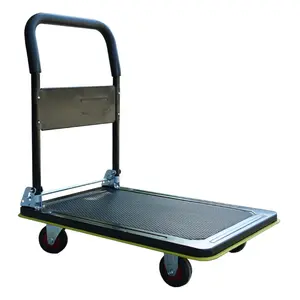Introduction to Railroad Work
Railroad work is a crucial industry that ensures the safe and efficient transportation of goods and people across vast distances. This sector encompasses a wide range of activities, from construction and maintenance of railway tracks to the operation of freight and passenger trains. With a rich history and continuous technological advancements, the nature of railroad work has evolved significantly, ensuring that it meets contemporary demands while ensuring safety and efficiency.
Types of Railroad Work
Railroad work can be segmented into several key categories, each with distinct responsibilities and expertise:
- Track laying and maintenance: This involves the installation, repair, and regular inspection of railroad tracks to ensure they are secure and safe for trains.
- Signal operation: Signal workers manage the systems that control train movements, ensuring that trains run smoothly and safely across the network.
- Train engineering and design: This encompasses the design, testing, and maintenance of trains, ensuring they meet rigorous safety standards and operational requirements.
- Freight handling: This involves the management and transportation of goods, including loading and unloading cargo from trains.
- Passenger services: Staff in this area focus on providing a pleasant experience for travelers, from ticketing to customer service.
Function and Feature of Railroad Work
The primary functions of railroad work revolve around safety, efficiency, and reliability. Key features include:
- Safety systems: Railroad work incorporates various safety mechanisms, including signals, switches, and barriers to prevent accidents.
- Advanced technology: Modern railroad work utilizes cutting-edge technology such as GPS tracking, automated train control systems, and real-time communication tools.
- Skilled workforce: The industry demands a highly trained workforce proficient in various technical skills, ensuring the delivery of safe and effective services.
- Environmental considerations: Railroad work emphasizes sustainability, using eco-friendly materials and methods to minimize environmental impact.
- Regular upgrades: The industry frequently updates its infrastructure and practices to adapt to changing technological landscapes and consumer demands.
Applications of Railroad Work
Railroad work has diverse applications that significantly impact industry and society:
- Freight transport: Railroads are essential for the efficient transport of bulk goods, minerals, and manufactured products across long distances.
- Public transportation: Passenger trains offer a reliable and sustainable means of transport for daily commuters, contributing to reduced road congestion and lower emissions.
- Infrastructure development: Railroad construction and maintenance spur economic development by connecting remote areas to urban centers, facilitating trade and commerce.
- Tourism: Scenic train routes and historic railways attract tourists, showcasing the natural beauty and cultural heritage of regions.
Advantages of Engaging in Railroad Work
Engaging in railroad work offers numerous advantages, enhancing both personal and communal outcomes:
- Job stability: With constant demand for transport and logistics, careers in railroad work often provide job security.
- Advancement opportunities: The railroad industry encourages continuous learning and professional growth through various training programs and certifications.
- Community impact: Working in railroad projects contributes positively to local economies by improving access and creating jobs.
- Technological innovation: Employees gain exposure to cutting-edge technology, fostering a culture of innovation and adaptability.




































